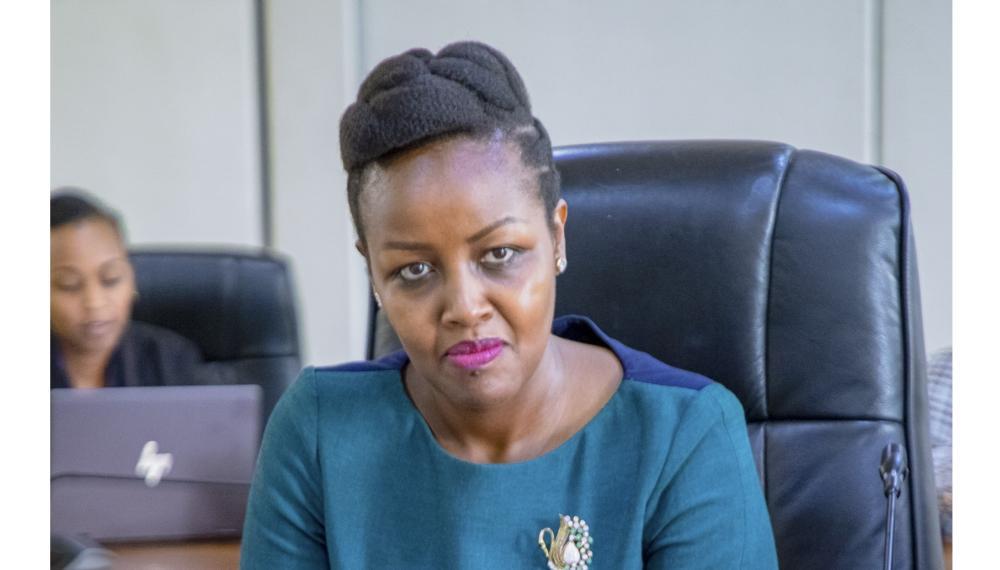Africa-Press – Rwanda. To accelerate digital transformation, leverage emerging technologies, and ensure digital inclusion, the Minister of ICT and Innovation, Paula Ingabire, has outlined the priorities for the next five years in line with the government’s second phase of the National Strategy for Transformation (NST2).
In video episodes highlighting achievements during NST1 and progress to executing NST2 agenda, Ingabire noted that NST1 has laid a strong foundation through an increase in infrastructure, high adoption of mobile phones, and internet usage and accessibility across the country in government and private sectors.
The NST2 was approved in 2024 following the completion of NST1, which was executed within seven years. NST2 has five priorities – creating decent and productive jobs, boosting exports, enhancing public service delivery, improving the quality of education, and reducing stunting and malnutrition.
Here are six key priorities for the ministry as the road to achieving the NST2 agenda continues:
Last mile connectivity
The minister said that the government seeks to ensure that every home in Rwanda is well connected and able to benefit from the digital economy.
Currently, the internet coverage by area in Rwanda is 75 percent, while in three years, 840 connectivity towers need to be set up to increase coverage area to 97 percent.
“We are working with different telecommunication companies to consider together how many of the 840 connectivity towers a company could install based on the licences it has,” the minister said while in parliament on Thursday, March 13.
Data
The minister underscored that NST1 laid the foundation by ensuring that all government services are digital, emphasizing that leveraging datasets available to the government would inform policy making.
“We are also benefiting again from the foundations of having all government services that have gone digital, and being able to leverage different datasets that we have as government to inform policy making and execution, but also at the same time to inform how we can better support the private sector,” Ingabire said.
Cybersecurity
Ingabire noted that as Rwanda is advancing in technology, there is a need to upgrade and extend the country’s capabilities to safeguard infrastructure and information assets.
In 2023, the Global Cybersecurity Index report by the International Telecommunications Union(ITU) ranked Rwanda among the world’s “role model” countries in global cybersecurity.
Additionally, in collaboration with different partners, Rwanda plans to establish a cybersecurity academy this year, aiming to improve protection against technology-related threats.
Emerging technologies
Reflecting on emerging technologies like Artificial Intelligence (AI), blockchain, and Internet of Things (IoT), Ingabire highlighted that Rwanda is setting itself up in a way that it can gain from the benefits and promises that such technologies provide.
Smart cities and green tech
The minister noted that the government will emphasize a strong focus on smart cities and green technologies while also developing smart communities.
“So, we look at all these green technologies that we can deploy to ensure that we are addressing the urbanization challenges, that almost every country is dealing with,” she added.
In 2023, Africa Smart City Index ranked Kigali as the first Africaan smart city among 30 cities that participated in the assessment.
Talent
“Talent will remain a key priority for us, more from the perspective of making sure that Rwanda truly remains a proof-of-concept country where all these emerging technologies are tested, tried, and then scaled to different parts of the continent and even outside Africa,” she noted.
For More News And Analysis About Rwanda Follow Africa-Press






